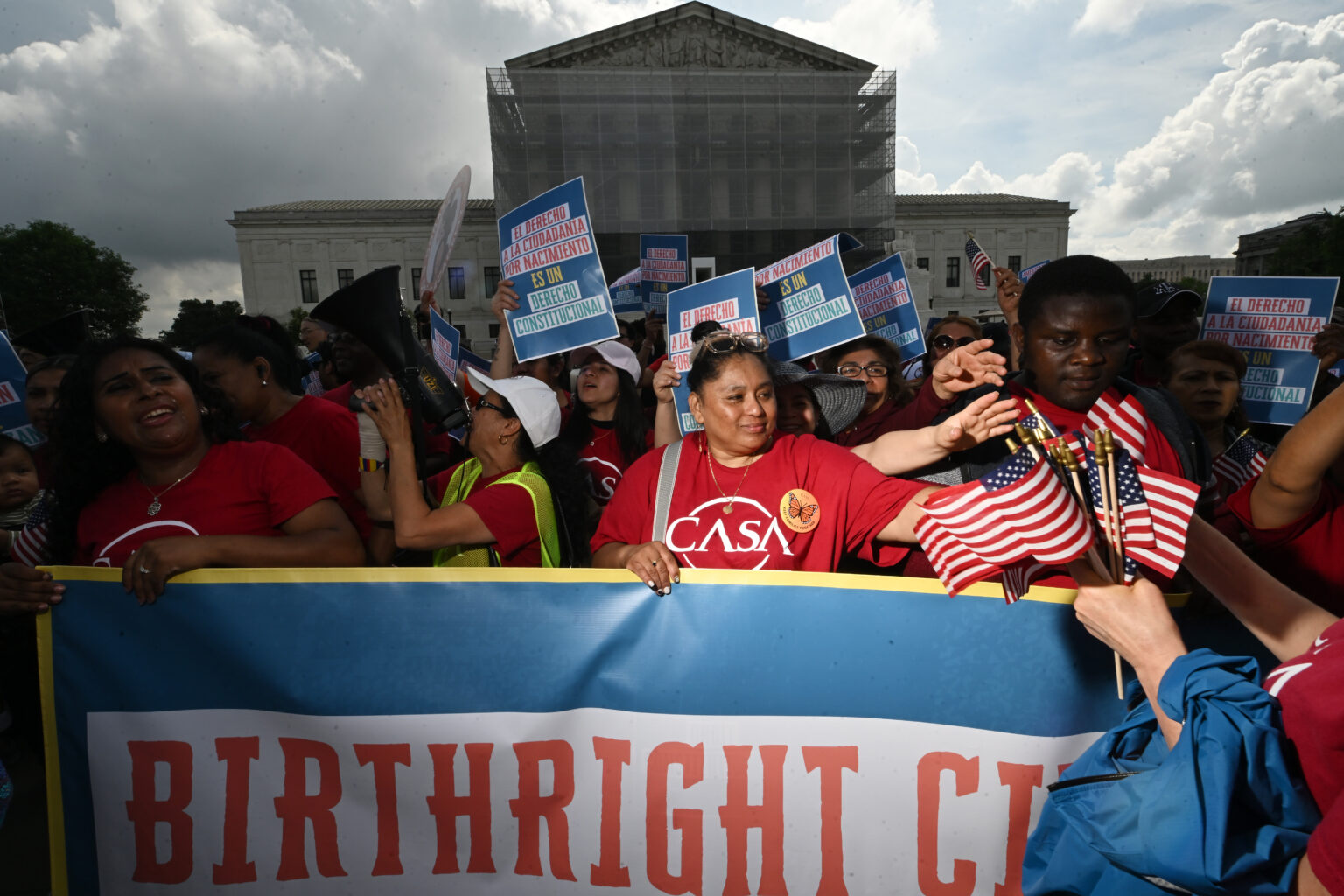Challenges Mount as Senate Strives to Pass Major Legislation Before July 4
The United States Senate is currently navigating a series of significant hurdles as it aims to meet an ambitious self-imposed deadline of July 4 to pass comprehensive legislation encompassing tax reforms and immigration policies. Key obstacles include lingering skepticism from some Republican senators regarding proposed reductions to Medicaid funding, as well as recent adverse rulings from the Senate parliamentarian that have led to the removal of certain provisions from the bill. Given these complications, the likelihood of holding votes this coming Friday appears slim. Meanwhile, at the White House, President Donald Trump is preparing to host foreign ministers from the Democratic Republic of Congo and Rwanda. These nations are expected to sign a peace agreement facilitated by the United States, aimed at resolving long-standing conflicts in the region.
Supreme Court Ruling on Presidential Authority and Nationwide Injunctions
On Friday, the Supreme Court issued a landmark decision that challenges the scope of judicial power concerning nationwide injunctions. The court determined that such injunctions, which have historically blocked President Trump’s efforts to end birthright citizenship for certain groups, likely exceed the authority granted to federal courts by Congress. This ruling could significantly reshape the balance of power between the judiciary and the executive branch.
In a 6-3 verdict, the justices emphasized that when courts find executive actions unlawful, they should not overstep their constitutional bounds. The majority opinion, authored by Justice Amy Coney Barrett, clarified that federal courts are tasked with resolving specific cases and controversies within the limits set by Congress, rather than issuing broad, nationwide orders. The dissenting justices-Sonia Sotomayor, Elena Kagan, and Ketanji Brown Jackson-criticized the decision, warning it could lead to chaos and undermine protections for vulnerable populations.
End-of-Term Decisions and Their Impact
The Supreme Court’s final day of the term is marked by the release of several pivotal rulings. Among these are cases addressing whether parents can opt their children out of school lessons involving LGBTQ themes, and a Texas law requiring age verification for online pornography. These decisions are expected to influence social and legal landscapes significantly, and detailed analyses of each will be provided in upcoming reports.
Supreme Court Approves Limiting Trump’s Immigration Policies
In a decisive 6-3 vote, the Supreme Court upheld President Trump’s request to narrow the scope of nationwide injunctions that have temporarily blocked his administration’s efforts to restrict immigration. Specifically, the court approved a partial stay on orders that have prevented the enforcement of Trump’s policy to deny automatic citizenship to children born in the U.S. to undocumented immigrants and foreign visitors-a core element of his broader immigration agenda.
This ruling directs lower courts to reassess the practical effects of the injunctions and leaves open avenues for opponents to challenge the policy further. Importantly, the court did not directly address whether the policy itself is constitutional, which opponents argue conflicts with the 14th Amendment, judicial precedents, and the nation’s historical understanding of citizenship.
Legal Foundations and Controversies Surrounding Birthright Citizenship
The Trump administration’s move to end automatic citizenship for certain children born in the U.S. is rooted in the belief that children of undocumented immigrants are not “subject to the jurisdiction” of the United States, thus justifying the policy. This initiative is part of a broader effort to overhaul immigration laws, including travel bans from over a dozen countries, expedited deportations of suspected gang members from Venezuela, restrictions on refugee admissions, and the removal of legal protections for over half a million migrants.
President Trump signed an executive order on his first day back in office to revoke birthright citizenship for children of non-citizens and visitors. This move prompted lawsuits from 22 states and immigrant advocacy groups, asserting that the order violates constitutional guarantees and established legal precedents.
The 14th Amendment and Its Role in Citizenship Rights
Enacted after the Civil War, the 14th Amendment guarantees citizenship to all individuals born or naturalized in the United States, regardless of their parents’ status. This clause was a direct response to the Dred Scott decision, which had denied citizenship to Black Americans. The amendment’s citizenship clause affirms that anyone born on U.S. soil is a citizen, barring exceptions such as children of foreign diplomats.
Supporters of the Trump policy argue that the phrase “subject to the jurisdiction thereof” allows for excluding children of unauthorized immigrants. However, legal scholars and opponents contend that such an interpretation would require rewriting the constitutional text and conflicts with longstanding Supreme Court rulings, including the 1898 decision in Wong Kim Ark, which reaffirmed birthright citizenship for children born in the U.S. to immigrant parents.
Looking Ahead: Ongoing Legal and Political Debates
This story is developing, with further legal challenges and legislative debates anticipated. The implications of the Supreme Court’s recent ruling could influence future immigration policies and the judicial limits on executive authority. As the nation continues to grapple with these complex issues, the balance between constitutional protections and executive powers remains a focal point of national discourse.

